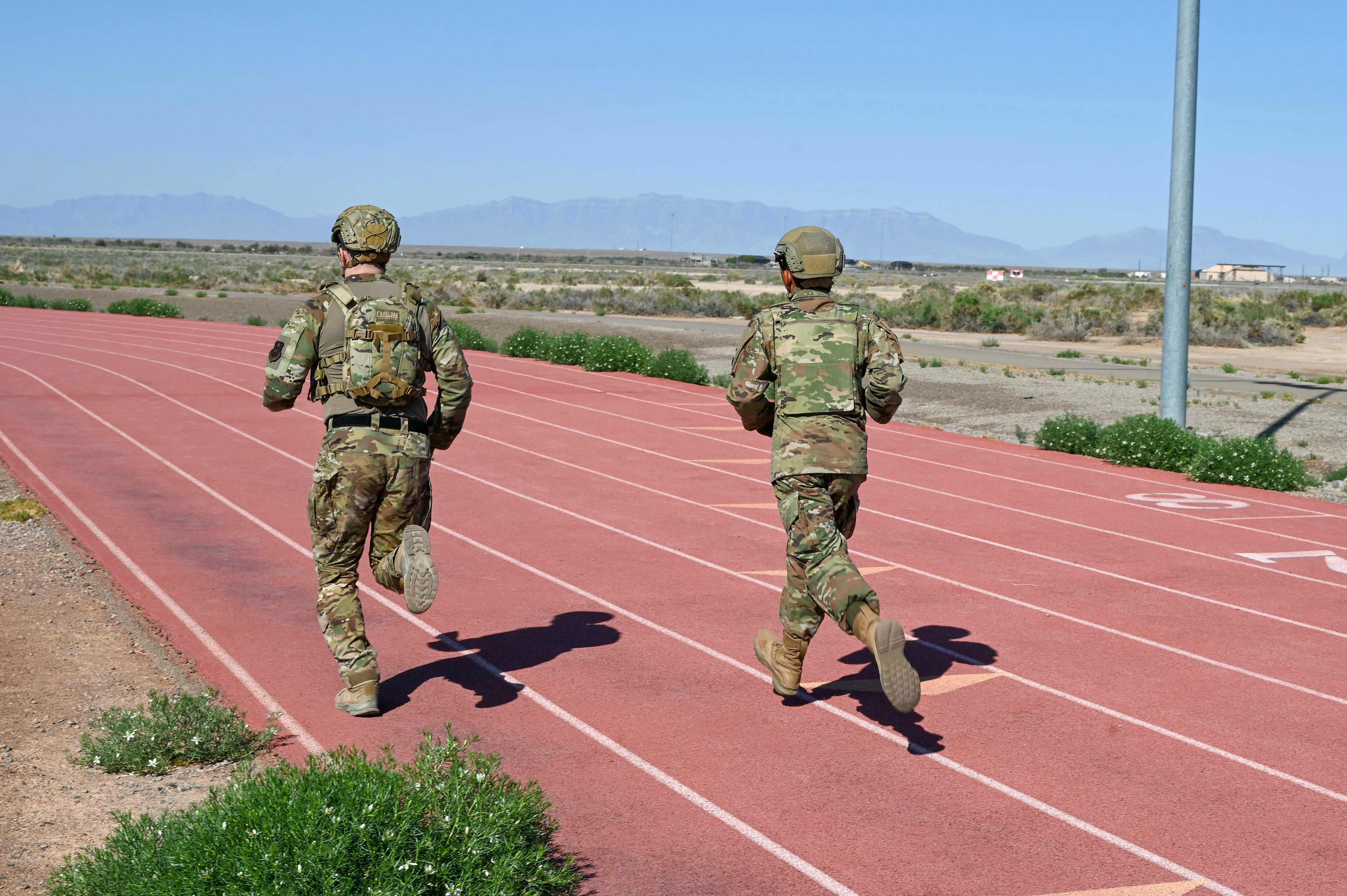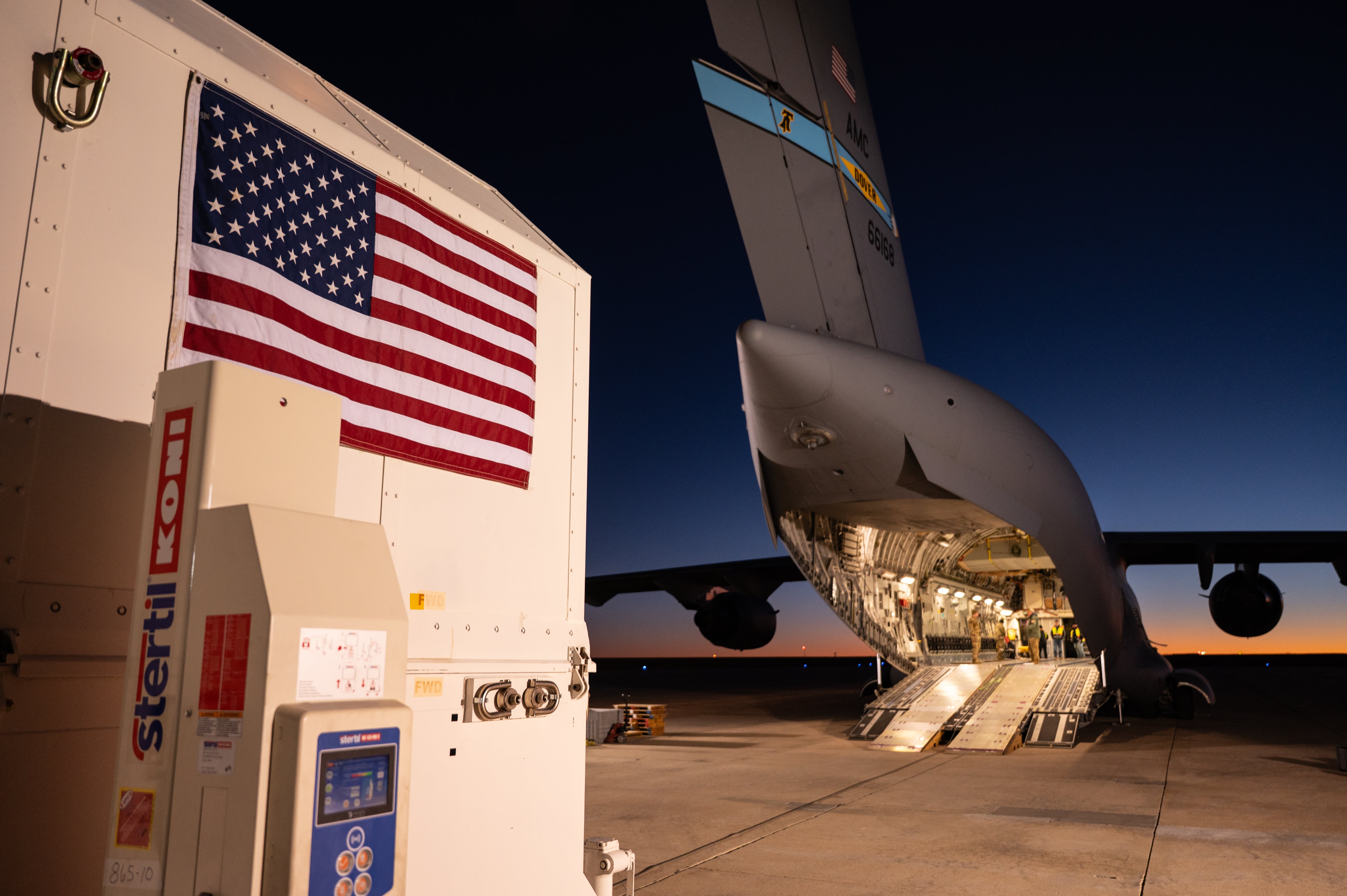Contracting document language is raising questions about possible other new features that might be included as the U.S. Army launches a five-site “campus-style” dining facility pilot program for possible expansion to installations across the service.
Officials, including Sergeant Major of the Army Michael Weimer, addressed questions about the pilot program, announced at the end of September, at the Association of the United States Army’s annual meeting Monday.
They didn’t rule out possible alcohol sales at some locations and would not address whether soldiers could be asked to add a tip to a government-provided meal.
Weimer stressed that the dining pilot, designed to give soldiers more options and better meet their dining habits and needs while emphasizing nutritious choices, furthers the Army’s goals of lethality and readiness.
“We’ve got to feed the machine … we’ve got to feed them in the field; we’ve got to feed them at home station,” Weimer said.
“And just like everything else we do in holistic health and fitness, nutrition is a huge part of that. Everything we put in our body is either going to help us seek peak performance or hurt us from accomplishing that goal.”
Language in a 134-page January request for proposals raised concerns about limited accountability, undefined terms such as “fresh” and “high-quality” related to food, and opportunities contractors might find to upcharge soldiers at mealtime and split the profits with the Army. The service published a statement in June pushing back on a Military.com report questioning the language, emphasizing that the pilot dining sites were supplementary to existing Army dining facilities, that alcohol sales would be evaluated as to whether they aligned with the goals of the pilot, and that soldiers would only be charged for items beyond the “essential station messing” provided meal.
In response to questions about alcohol sales, Col. Craig Thompson, deputy chief of staff for logistics, facilities and environment at Army Materiel Command, acknowledged the issue was still on the table. Moreover, he stressed the Army’s definition of these new dining sites as morale, welfare and recreation - MWR - restaurants, rather than service dining facilities.
“Just like any other MWR restaurant in any installation, it is the senior commander’s decision on how that’s utilized, whether it’s allowed or whether it’s limited,” Thompson said.
The panel twice would not acknowledge questions about whether a point-of-sale tip might be solicited, as contracting documents refer to tipped workers. But Cindy Smith, director of Supply Policy and Programs, said while the question was under the purview of AMC, it wasn’t part of the Army’s intent.
“If there were pressure for soldiers to tip … we would address that," she said because the Army would not want soldiers, “especially your meal card soldier, who’s not paying money at that point to eat” to feel obliged to tip.
While the first of the five campus-style dining facilities, the one at Fort Bragg, N.C., is not set to open until January, the Army is already evaluating opening 10 more facilities over the next 12 to 18 months, including one or two locations overseas.
Feedback from a separate two-week pilot at Fort Hood, Texas, in August, in which soldiers were able to use their meal card allowance for preset meals at base restaurants showed “lots of success,” Thompson said with 70% of the 217 soldiers in the pilot choosing meals deemed “green,” or healthy. Soldier feedback will also be emphasized in the campus pilot, according to Maj. Gen. Gavin Lawrence, deputy chief of staff for logistics and operations at AMC, with soldiers able to access an evaluation form via QR code as they enter the facility.
Weimer said the Army continued to learn lessons about privatization from its quarter-century private housing venture, which in recent years has come under scrutiny as reporting has revealed systemic problems with black mold and vermin.
“We’re looking for honest feedback from the soldiers at those five locations, and then the contract oversight we’re going to be responsible for holding them accountable,” Weimer said. “In our history … when, let’s say, we have catastrophic success, and then we scale the contract, and then we’re not paying attention as much as we were in the past. That’s where we as an Army have to get better with holding folks accountable.”
Hope Hodge Seck is an award-winning investigative and enterprise reporter covering the U.S. military and national defense. The former managing editor of Military.com, her work has also appeared in the Washington Post, Politico Magazine, USA Today and Popular Mechanics.





